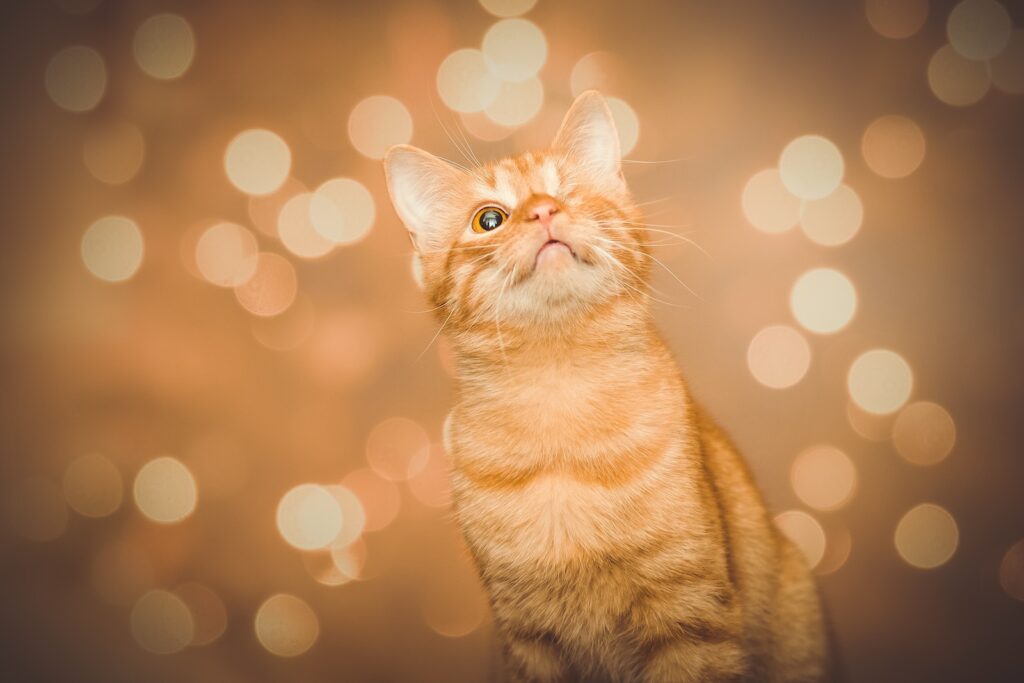Can Cats Eat Yoghurt? — Yes, They Can
Yoghurt is safe for cats to consume in moderation. While cats are obligate carnivores and have specific dietary needs, yoghurt can be a healthy addition to their diet. However, there are a few important factors to consider before feeding yoghurt to your feline friend.
Can Kittens Eat Yoghurt?
Yes, kittens can eat yoghurt but with caution. While yoghurt can provide certain health benefits to kittens, it is crucial to introduce it gradually into their diet and monitor their tolerance to avoid any digestive issues.
Things to consider when feeding yoghurt to kittens?
It is important to choose plain, unsweetened yoghurt without any artificial flavors or additives. Start by offering a small amount of yoghurt as a treat to see how your kitten’s stomach reacts. If there are no negative effects, you can slowly introduce yoghurt into their diet in moderation.
Nutritional Benefits of Yoghurt for Cats — Why Yoghurt is good for Cats?
1. Probiotics for Digestive Health
Yoghurt contains beneficial probiotics that can promote a healthy digestive system in cats. These live bacteria aid in the breakdown and absorption of nutrients, helping to maintain a balanced gut flora.
2. Calcium for Strong Bones
Yoghurt is a good source of calcium, which is essential for maintaining strong bones and teeth in cats. It can contribute to their overall skeletal health and prevent conditions such as osteoporosis.
3. Protein for Muscle Growth and Repair
Yoghurt contains protein, which is necessary for muscle growth and repair. It provides cats with essential amino acids, aiding in the development and maintenance of lean muscle mass.
4. Vitamin D for Calcium Absorption
Vitamin D, naturally present in yoghurt, helps cats absorb calcium effectively. This vitamin plays a vital role in regulating calcium levels in the body and promoting bone health.
5. Hydration and Palatability
Yoghurt has high water content, aiding in hydration for cats. Additionally, many cats find the taste of yoghurt pleasing, which can encourage them to consume it.
Potential Allergies: Can Cats Be Allergic to Yoghurt?
Cats can be allergic to yoghurt, although it is relatively rare. Some cats may experience digestive distress or allergic reactions, such as vomiting or diarrhea, after consuming yoghurt. It is essential to monitor your cat closely for any adverse reactions and consult a veterinarian if necessary.
Symptoms of Yoghurt Allergies in Cats
- Vomiting: Cats may vomit after ingesting yoghurt if they are allergic or intolerant to its components. Pay attention to any recurrent episodes of vomiting.
- Diarrhea: Cats may develop diarrhea as a reaction to yoghurt if they are sensitive to lactose or other ingredients in the yoghurt. Keep an eye on their litter box habits.
- Itching and Skin Irritation: In rare cases, cats may exhibit signs of itchiness, skin redness, or hives after consuming yoghurt. Check your cat’s skin for any abnormalities.
What to Do If Your Cat Shows Symptoms?
- Consult a Veterinarian: If your cat experiences any concerning symptoms after consuming yoghurt, it is advisable to seek professional advice from a veterinarian. They can provide appropriate guidance and conduct any necessary tests to determine the cause.
- Eliminate Yoghurt from the Diet: If your cat shows clear signs of yoghurt allergy or intolerance, remove yoghurt from their diet completely to prevent further complications.
- Provide Adequate Hydration: Ensure your cat stays hydrated by providing fresh water at all times. Hydration is crucial, especially if your cat experiences vomiting or diarrhea.
Recommended Amount: How Much Yoghurt Can a Cat Consume?
While yoghurt can be beneficial, it should only be offered as an occasional treat rather than a regular part of a cat’s diet. A teaspoon of plain, unsweetened yoghurt a few times a week is generally safe for most cats. However, it is always best to consult with your veterinarian regarding the specific dietary needs of your cat.
Things to Consider When Feeding Yoghurt to Cats
When introducing yoghurt to your cat, remember to choose plain, unsweetened varieties without any artificial flavors or additives. Additionally, monitor your cat for any adverse reactions and adjust the quantity accordingly to avoid digestive issues. Always consult with your veterinarian for personalized dietary recommendations.
How to Feed Yoghurt to Cats: A Quick Guide
Feeding yoghurt to your cat can be a delightful experience. Here are a few simple recipe ideas:
Yoghurt and Tuna Surprise
Mix a tablespoon of plain yoghurt with a small amount of canned tuna in water. Serve as an occasional treat.
Frozen Yoghurt Drops
Spoon plain yoghurt into small silicone molds or ice cube trays. Freeze until solid and offer as a refreshing snack during hot weather.
Yoghurt-Topped Treats
Dip your cat’s favorite treats or kibble into plain yoghurt. Allow the yogurt to set before serving for an extra special treat.
Conclusion
In summary, cats can enjoy yoghurt in moderation. It provides several nutritional benefits such as probiotics, calcium, protein, and vitamin D. However, it’s important to be aware of potential allergies and introduce yoghurt gradually into your cat’s diet. Always consult with a veterinarian to ensure your cat’s specific dietary needs are met. Treat your feline friend with love and care, and yoghurt can be a delightful addition to their occasional treat repertoire.





